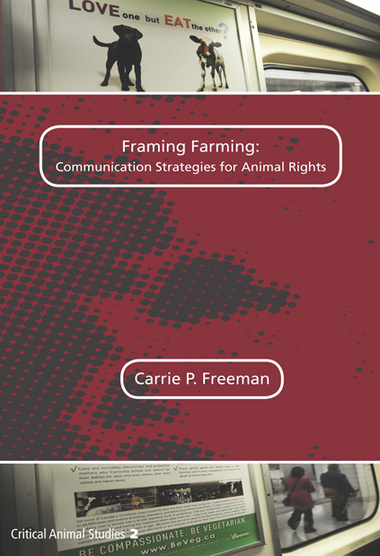|
READERS FOR THIS BOOK:
Framing Farming: Communication Strategies for Animal Rights is not one of the many books designed to tell readers why and how to eat vegan. Instead, it is designed for those who want to examine strategic choices for animal rights and environmental advocacy and consider how to shift society toward an animal-free diet. The book should appeal to:
As a blind, peer-reviewed scholarly book, it is appropriate to use in both graduate and undergraduate classes. |
ABSTRACT FROM THE BACK COVER: |
